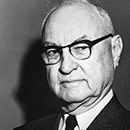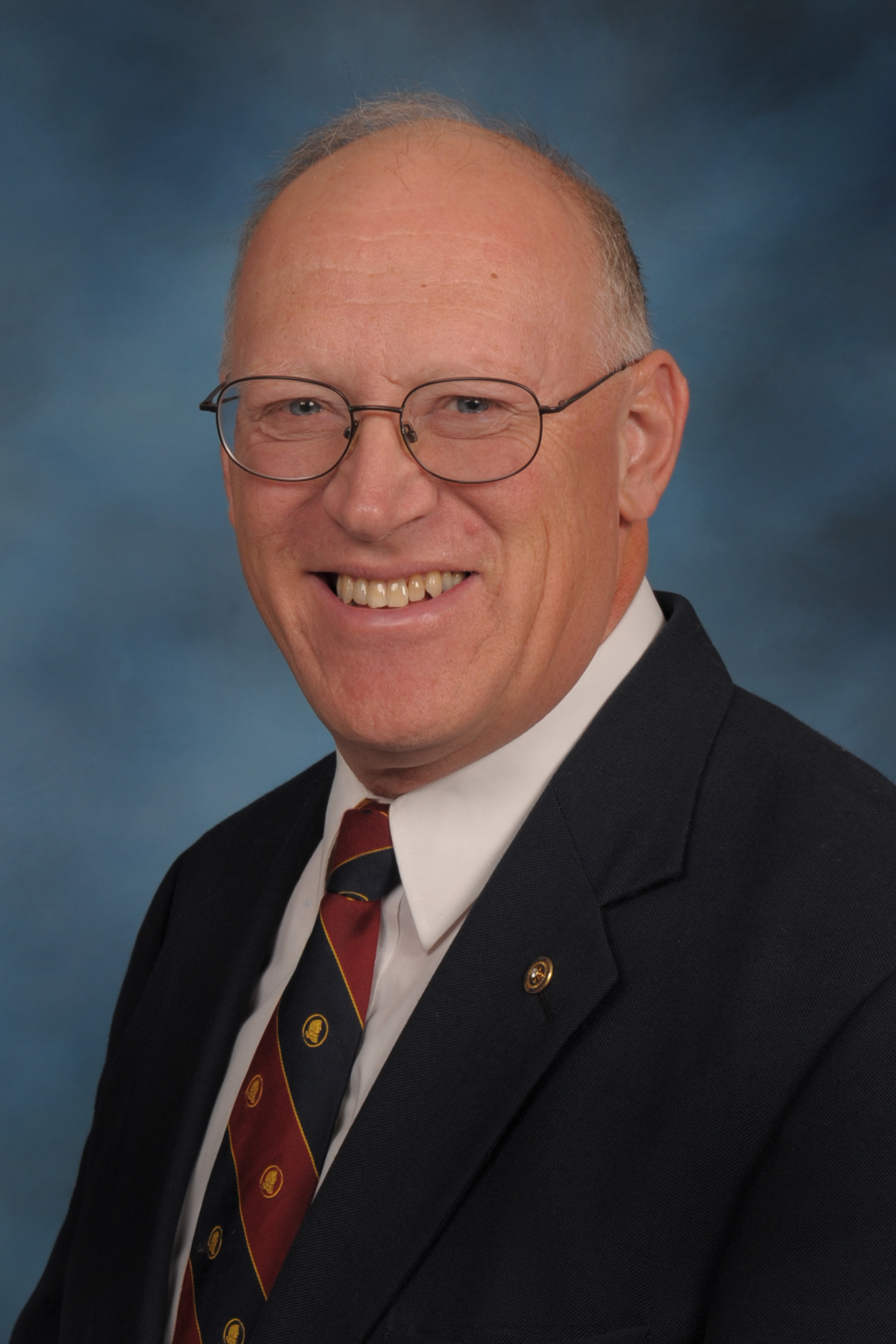What do you do with 100 extra mules? That’s probably not a problem you’ve dealt with lately, but it’s an interesting sidelight on the early career of a Kansas entrepreneur years ago. He became a titan of Kansas business, a behind-the-scenes leader in the nation’s government, and a tremendous benefactor of rural Kansas.
 Dane Hansen was born in 1883 to pioneer parents. His father was a Danish immigrant who came to Kansas and met and married a young schoolteacher in Logan. Logan is in Phillips County in northwest Kansas.
Dane Hansen was born in 1883 to pioneer parents. His father was a Danish immigrant who came to Kansas and met and married a young schoolteacher in Logan. Logan is in Phillips County in northwest Kansas.
Dane grew up in Logan. He had the mind of an entrepreneur. As a child, his father had a grist mill. Young Dane would go to the river crossing to watch for farmers bringing wagon loads of wheat to town to be processed. Dane would ask for a ride and then direct them to his father’s mill, until it was time to go again for the next prospective customer. That’s pretty creative.
After high school, he took one year of business studies in Missouri and returned to the family’s general merchandise store in 1905. His career as an entrepreneur was just beginning.
He and his father opened a lumberyard. Then they expanded their ranching operation, breeding Hereford cattle.
What about the mules? When the U.S. Army needed mules in World War I, Dane Hansen scoured the countryside and bought mules to sell to the Army. That worked fine until the Armistice. Suddenly the war was over, and Dane Hansen had more than 100 mules with no market for them.
For most people, that would have been a disaster, but Dane Hansen had the mind of an entrepreneur. He turned a negative into a positive, finding a creative way to use those mules. He set up a construction company and used those mules for earth moving and then to build roads. That was the way roads were built in those days, and it was a success.
The Hansen Construction Company was to grow and diversify. Then young Dane tried yet another enterprise: Oil. He started buying oil leases in northwest Kansas. In 1941, oil was discovered south of Logan. This led to Dane Hansen creating his own exploration company and ultimately becoming one of the largest independent producers in Kansas.
Good citizenship was another hallmark of Dane Hansen. At age 27, he was appointed Logan’s city clerk. He served his community in several capacities. He became deeply involved at the national level as well, although he did not seek the limelight. From 1920 to 1960, he never missed a Republican National Convention.
He was a national figure in Republican politics. He was a multi-millionaire in business. He could have located the headquarters of his operations anywhere. Instead, he kept his office right where he began: Logan, Kansas, population 633 people. Now, that’s rural.
Dane Hansen was a devoted family man, enjoying his nieces and nephews, although he himself never married. Interested in youth, he established the Dane G. Hansen Boy Scout Camp at Kirwin.
In 1964, when symptoms of ill health began to surface, he thought about how to leave his inheritance and put it to the best use. The result was the Dane G. Hansen Foundation, established after his death on his 82nd birthday in 1965.
To date, the Foundation has donated millions of dollars to various good causes benefitting Logan, northwest Kansas, and the state as a whole. His estate also supported the creation of the magnificent Dane G. Hansen Memorial Plaza and Museum in his hometown. This museum of international artifacts and traveling exhibits has been called the “Smithsonian of the Plains.”
Senator Harry Darby described Dane Hansen as “a symbol of all that’s good about Kansas. He had all the virtues: integrity, humility, honesty, kindness, dependability, loyalty.”
What do you do with 100 extra mules? You make a problem into an opportunity. That’s the spirit of entrepreneur Dane Hansen, whose life made a difference in rural Kansas.
Dane Hansen was forward-thinking in philanthropy as well as in business. We’ll learn more about the remarkable work of the Dane G. Hansen Foundation next week.
Audio and text files of Kansas Profiles are available at http://www.kansasprofile.com. For more information about the Huck Boyd Institute, interested persons can visit http://www.huckboydinstitute.org.
